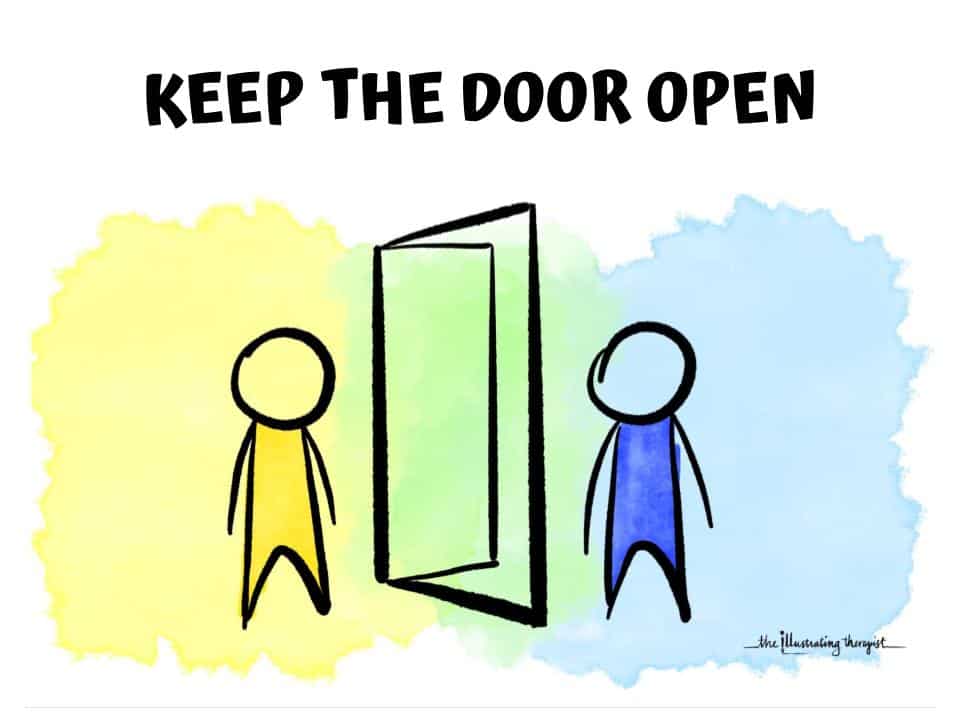Therapists spend their days assisting others, attending to their needs, offering direction, and creating a safe environment for their clients' feelings. However, continually giving without taking time to recharge can result in fatigue and burnout. Self-care is not an indulgence; it is essential for maintaining both individual health and professional efficacy. By incorporating small, purposeful practices into their everyday lives, therapists can safeguard their energy, alleviate stress, and present their best selves, for both their clients and themselves.
One of the major difficulties is transitioning from “therapist mode” to relaxation mode after a long day. The essential factor is discovering activities that effectively allow you to unwind and rejuvenate, whether through mindfulness practices, physical movement, or enjoying simple pleasures such as relaxing with a preferred show.
Our 10 Simple Ways Therapists Can Recharge After a Long Day:
1. Practice Deep Breathing or Meditation
Slow, intentional breaths activate the parasympathetic nervous system, reducing stress. Try the 4-7-8 technique (inhale for 4, hold for 7, exhale for 8) or a 5-minute guided meditation. This resets your mind and body after emotionally draining sessions. You may also find that incorporating mindfulness practices, such as body scans or gentle yoga, can further enhance your sense of calm. As you focus on each part of your body, notice any areas of tension and consciously relax them.
This awareness helps ground you in the present moment, freeing your mind from lingering worries.
Additionally, consider establishing a daily routine that includes time for relaxation and self-care. Whether it's a warm bath, reading a book, or spending time in nature, dedicating moments to nurture yourself can build resilience against stress.
2. Take a Relaxing Walk in Nature
Sunlight and fresh air lower cortisol levels. A 10-15 minute stroll without phones or distractions, helps transition from work to home. Focus on sights, sounds, and smells around you to ground yourself in the present moment. This mindful practice not only promotes relaxation but also enhances your overall well-being. As you walk, pay attention to the rhythm of your breath and the sensations in your body. Notice the warmth of the sun on your skin or the gentle rustle of leaves in the breeze. By immersing yourself in your surroundings, you create a mental buffer that can help alleviate stress and clear your mind.
Incorporating this practice into your daily routine doesn’t require a lot of time or effort, yet its benefits can be profound. Consider setting aside specific times each day for your mindful stroll, and notice how it shifts your perspective and improves your overall mental health. Over time, this small commitment can lead to significant changes in your mood, stress levels, and overall quality of life.
3. Journal Your Thoughts & Emotions
Writing releases pent-up feelings. Jot down client-related stress, personal reflections, or gratitude lists. This creates mental closure, preventing work thoughts from lingering into your personal time and allows you to fully engage in your life outside of work. By putting pen to paper, you can articulate your worries and frustrations, transforming them into manageable thoughts. This practice not only provides clarity but also helps identify patterns in your stressors, enabling you to address them more effectively.
Additionally, expressing gratitude can shift your focus from stress to positivity. A gratitude list can remind you of the good things in your life, no matter how small they may seem. This simple act can enhance your mood and foster resilience, making it easier to navigate difficult situations.
Ultimately, writing serves as a form of self-care. It encourages mindfulness, allowing you to be present in the moment and appreciate your surroundings. As you cultivate this practice, you'll likely find that it not only alleviates stress but also enriches your personal and professional relationships. So, grab a journal, and start writing your way to a clearer mind and a more balanced life. .
4. Enjoy a Warm Bath or Aromatherapy
Heat soothes tense muscles, while lavender or eucalyptus scents calm the mind. Add Epsom salts for extra relaxation. Even a 10-minute soak signals your body to unwind. The warm water envelops you, releasing the day’s stress as you sink deeper into the bath. Close your eyes and take a deep breath, allowing the soothing aromas to fill your senses. As the heat penetrates your muscles, it encourages blood flow and eases tension, making way for a profound sense of tranquility.
Consider adding a few candles around the tub to enhance the ambiance, their flickering light casting gentle shadows that dance across the walls. Soft music or nature sounds can further enhance the experience, creating a serene backdrop for your escape.
As you soak, take the time to reflect on your day, letting go of any worries or distractions. Focus on the sensation of the water against your skin, the way it cradles you, supporting not just your body but also your mind.
When you’re ready to emerge, take a moment to appreciate the stillness you’ve cultivated. Wrap yourself in a soft towel, and perhaps indulge in a warm herbal tea to prolong the relaxation. This ritual, though brief, can become a cherished part of your self-care routine, a sanctuary where you can always return to recharge and rejuvenate.
5. Unwind with Shows or Movies
Stream lighthearted shows or nostalgic favorites via IPTV to mentally detach. Avoid work-related content; opt for comedies or nature documentaries. It’s a passive way to recharge while enjoying entertainment. Consider diving into genres that spark joy or curiosity, like feel-good movies or travel shows that allow you to explore new places from the comfort of your couch. Set up a cozy viewing area with blankets and your favorite snacks to enhance the experience. Engage with family or friends by inviting them for a movie night, sharing laughs over classic comedies or competing for the best commentary during a nature doc.
Don't forget to take breaks between episodes to stretch or grab a refreshing drink. This not only helps maintain your energy but also keeps your mind from becoming too passive. Use this time to reflect on what you’ve watched or even jot down your thoughts in a journal; it can be a fun way to engage with the content.
6. Engage in a Creative Hobby
Painting, knitting, or playing music shifts focus from analysis to creation. Flow states in hobbies reduce stress and restore joy unrelated to therapeutic work. These activities foster a sense of accomplishment and fulfillment that can be deeply nurturing. Engaging in creative pursuits allows individuals to tap into their innate talents and explore their emotions in a non-verbal way. The rhythmic motions of knitting, the vibrant colors of a painting, or the harmonious notes of a melody can transport us to a different mental space, providing an escape from daily worries and pressures.
Participating in these activities can also foster connections with others. Whether through collaborative art projects, knitting circles, or music groups, shared creative experiences can strengthen social bonds and provide a supportive community. This connection can be both uplifting and grounding, reminding us that we are not alone in our endeavors.
Ultimately, prioritizing hobbies that ignite our passion is essential for a balanced life. They serve as a reminder of our capacity for creativity and joy, offering a respite from the demands of everyday responsibilities. By embracing these moments of creation, we enrich our lives and cultivate a deeper sense of purpose and satisfaction.
7. Connect with Loved Ones
Social support buffers burnout. Share a meal, call a friend, or cuddle a pet. Laughter and connection release oxytocin, counteracting the isolation therapy work can bring. Engaging in meaningful interactions can significantly enhance our resilience against stress. When we share our experiences with others, we not only lighten our emotional load but also gain new perspectives that can help us navigate challenging situations.
Moreover, sharing a meal with others promotes not just nourishment but also conversation and laughter, which are vital for emotional well-being. Cooking together can be a fun and engaging way to strengthen relationships while creating lasting memories.
Incorporating these elements of social support into our daily lives can act as a powerful antidote to burnout, reminding us of the joy and comfort that comes from connection. Prioritizing these interactions can ultimately lead to a more balanced and fulfilling life, enabling us to tackle challenges with renewed energy and optimism.
8. Listen to Calming Music or Podcasts
Soft instrumental tracks or uplifting podcasts (non-therapy-related!) ease mental fatigue. Try binaural beats for relaxation or humorous content to lighten your mood. Engaging with these auditory experiences can create a soothing backdrop while you work, study, or unwind. Consider creating a playlist that combines your favorite soft melodies with podcasts that inspire or entertain you. Exploring different genres can also keep your auditory experience fresh and stimulating.
Additionally, you might find that certain sounds or rhythms resonate more with you. Experiment with different types of music or podcasts to discover what works best for your personal relaxation and focus. Whether it’s classical music, nature sounds, or engaging storytelling, the right audio can significantly enhance your overall well-being.
Lastly, consider sharing your favorite tracks or podcasts with friends or family. This not only creates opportunities for connection but also helps to build a community around shared interests in uplifting content.
9. Set Boundaries & Disconnect from Work
Turn off work notifications post-session. Designate a “transition ritual” (e.g., changing clothes) to mentally clock out. Protect personal time guilt-free. Engage in activities that rejuvenate you, such as reading, exercising, or spending time with loved ones. Establish boundaries around your availability and communicate them clearly to colleagues. Consider setting specific work hours, and stick to them as much as possible.
Incorporate mindfulness practices, like meditation or deep breathing, to help you shift from work mode to personal time. Reflect on your day and jot down any lingering thoughts in a journal to clear your mind.
Additionally, cultivate hobbies that bring you joy and allow you to unwind. Whether it’s cooking, painting, or gardening, find what makes you feel good and prioritize it. Remember, your well-being is essential for sustained productivity and happiness. By carving out this personal space, you’ll return to work refreshed and more focused.
10. Prioritize Quality Sleep
Aim for 7–9 hours with a wind-down routine: dim lights, no screens, and a cool room. Sleep is foundational for emotional resilience. Aim for 7–9 hours with a wind-down routine: dim lights, no screens, and a cool room. Sleep is foundational for emotional resilience. It allows your brain to process information, consolidate memories, and regulate mood. Establishing a consistent sleep schedule can help reinforce your body's natural circadian rhythm, making it easier to fall asleep and wake up refreshed.
In addition to creating a conducive sleep environment, consider incorporating relaxation techniques into your routine. Activities such as deep breathing, gentle stretching, or meditation can help calm your mind and prepare your body for rest. Avoid stimulating activities or heavy meals close to bedtime, as these can interfere with your ability to fall asleep.
Prioritize sleep as a vital component of your overall well-being, as it not only enhances your physical health but also supports your emotional stability, cognitive function, and resilience in facing daily challenges. By nurturing your sleep habits, you lay the groundwork for a more balanced and fulfilling life.
Conclusion: Recharge & Relax After a Long Work Day
As therapists, your capacity to support others is directly linked to how effectively you take care of yourself. Burnout isn't an immediate occurrence; it builds up from continually prioritizing the needs of others over your own. By integrating even a couple of these straightforward rejuvenation techniques into your everyday life, you can safeguard your energy, alleviate stress, and sustain the enthusiasm that initially attracted you to this profession.



 We respect your privacy.
We respect your privacy.




